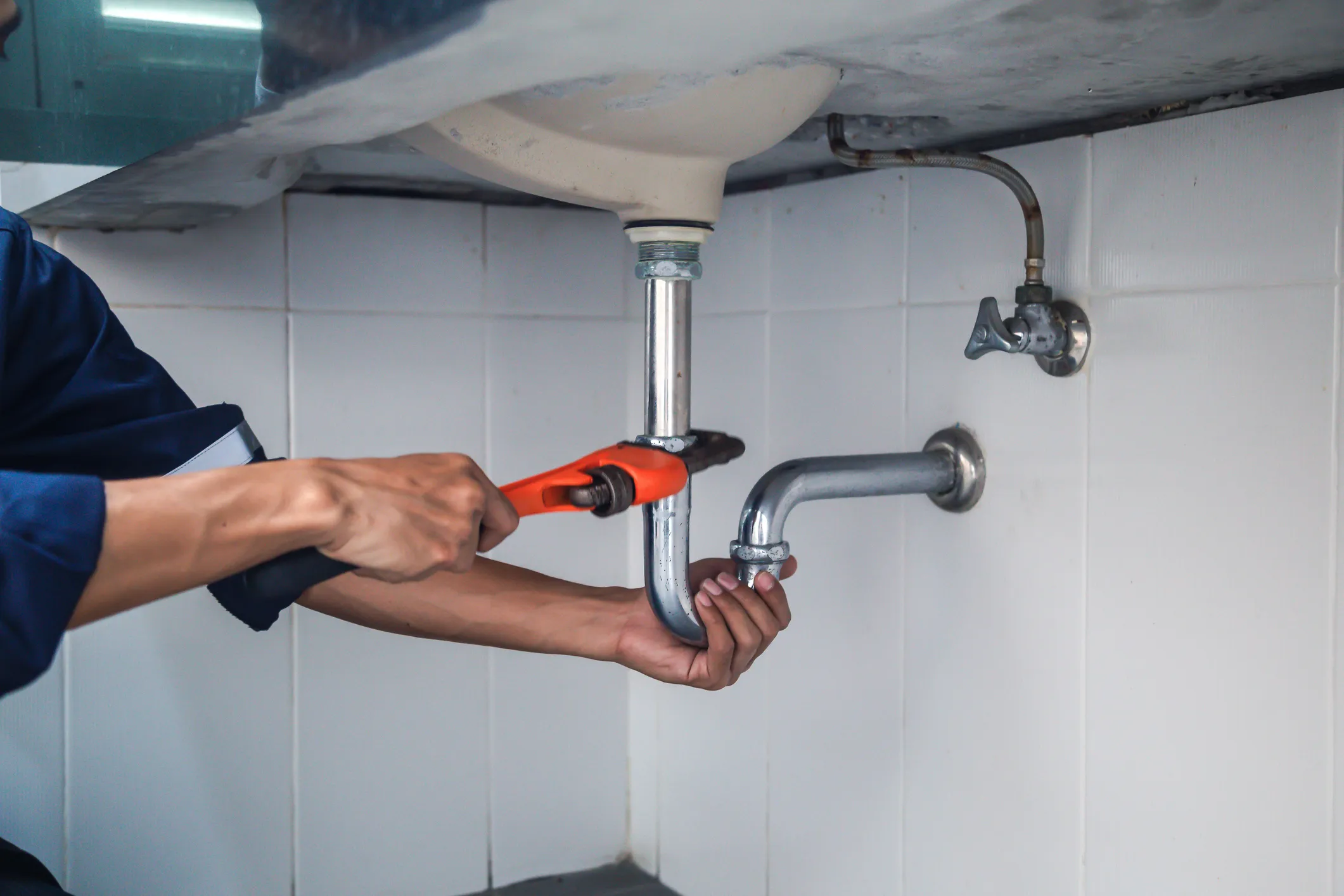How to Prevent Plumbing Leaks, Clogs and Flooding
You rely on your home’s plumbing to run smoothly, but hidden issues can hide everywhere. Thankfully, you can avoid obstructions, leaks and water damage with a little preventive maintenance. Here’s how to keep your water running and your worries at bay.
1. Keep Foreign Debris Out of Sink Drains
Many kitchen sinks may be outfitted with a garbage disposal, but certain food items still belong in the trash can or compost heap rinsed down the drain, including:
- Grease from cooking
- Tough foods like corn and celery
- Old food like boiled rice or coffee grounds
- Solid objects like gristle and animal bones
- Anything that isn’t edible. Silverware and similar items can fall into the disposal and damage something when you turn it on.
2. Understand What Shouldn’t Be Flushed
Toilets are designed to safely remove human waste and toilet paper. Here’s what you should never flush:
- Baby wipes
- Paper towels
- Cotton balls and swabs
- Women’s hygiene products
- Diapers
- Dental floss
- Out-of-date medications
3. Use Drain Strainers
An easy method to avoid clogging is to place sink strainers over your kitchen and shower drains. They collect hair, pieces of soap, crusty toothpaste and other debris as water flows down the drain. these strainers to keep your drains working properly.
4. Locate the Main Water Shutoff Valve
Being familiar with your plumbing system means knowing how to find your main water shutoff valve. This valve regulates water coming into your home, so knowing where it is means you can turn it off quickly in a plumbing emergency. It’s also wise to close this valve before traveling for an extended period. Common locations for the main shutoff valve include the basement, near the water heater, in a utility closet or outside the home in the ground.
5. Get a Sump Pump
Installing a sump pump can really help prevent floods, especially in areas prone to high annual rainfall. This device pumps out water that accumulates in a sump basin, generally installed in the floor of your basement, and pumps it out away from the house. For homes that already have a sump pump, make sure it’s in good shape by adding some water into the pit. If the pump activates and the pit drains, you’re all set. If it doesn’t seem to be working properly, you have time to call a professional to fix the pump before another rainstorm.
6. Set Up Flood Alarms
Just as smoke alarms help improve fire safety, flood alarms help prevent water damage. These wired or battery-operated devices sense pooling water at the earliest stages of flooding or leaks, sounding an alarm to alert you. For further protection, include smart flood alarms into your home security system. This notifies you on your phone as soon as water has been detected, allowing you to deal with leaks before they cause significant damage.
7. Install a Backflow Valve
Experienced plumbers often suggest that homeowners set up a backflow valve in the basement floor drain to keep sewage from backing up into their homes during heavy rainfall. Local expert plumbers can install this strong layer of protection against sewage flowing back into the house.
Find and Avoid Leaks of All Sizes
Now that we’ve covered best practices and useful plumbing accessories, let’s review some preventive steps you can take to avoid leaks, or worse, burst pipes.
Most of your home plumbing is concealed, so dripping pipes often go on for weeks until they create the potential for water damage. Regularly checking for leaks can help you spot trouble before it gets worse. Here’s how:
- Check under the sink for signs of damp spots, wood rot or mold growth.
- Find small leaks in your toilet by putting in a few drops of food coloring to the tank. If the color shows up in the bowl after 30 minutes without flushing, you have a leak.
- Inspect around and behind your kitchen appliances, including the dishwasher or washing machine, for signs of water damage or leaking.
- Schedule a water meter test.
- First off, close off all water in your home via the home’s water main.
- Then, walk outside to read the water meter. Check one more time after two hours, being careful not to use any water before the second reading.
- If the reading changes, you know there’s a leak somewhere.
Do Everything You Can to Avoid Frozen Pipes
In cold climates, helping protect your pipes is crucial to minimize the risk of freezing and bursting. Here are some professional recommendations:
- Cover pipes in the appropriate insulation in purely functional/utility spaces like the basement, garage or attic using insulating foam or heating tape.
- Unhook garden hoses from outdoor faucets throughout the winter to stop ice from forming inside the pipes.
- Keep under-sink cabinet doors open during freezing temperatures to keep warm air circulating around the pipes.
Trust Dependable Local Plumbers for Support
While you can carry out all sorts of preventive steps on your own to help prevent clogs, leaks and damage from floods, sometimes it takes Expert local plumbers to keep things flowing smoothly. That’s where excels. We are a network of plumbers serving U.S. homes from coast to coast with service backed by a 100% satisfaction guarantee. If you’re not completely thrilled with your level of service by next year, we will do everything we can to make it right. This commitment shows how we deliver total comfort and peace of mind in your life. For some of the best plumbing service that exceeds expectations, please contact us today



